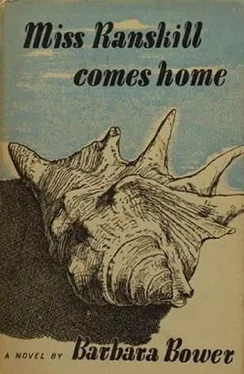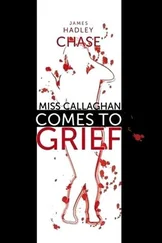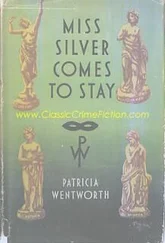‘It doesn’t seem fair,’ thought Miss Ranskill as she watched her hostess pouring water into the teapot. ‘It doesn’t seem fair to cheat him of the years his father was alive.’ But she only said, ‘I shall keep the boat then, I mean, I shall have it kept. Perhaps when the boy is older he might like it. It’s the sort of thing that a boy would like.’
‘Money now, that would be different,’ continued Mrs Reid. ‘I suppose there wasn’t any money?’
Miss Ranskill had meant to keep the story of the money a secret, but, either because her responsibilities as a trustee began to weigh upon her or because she could not resist watching the effect on Mrs Reid, she answered casually, ‘There was just a little money, but we had to use it.’
‘ Use it! On a desert island? You said it was a desert island.’
‘We used it to keep the fire going one very wild night about two years ago.’
‘To keep the fire going! Of all the–’
In the pause that followed, while Mrs Reid tried to find words to express her contempt of such wantonness, Miss Ranskill’s mind slipped overseas.
It had been a very wild night. Over and over again, the Carpenter had gone out of his shelter to guide, with the few dry twigs that remained, the spluttering flames from one part of the bonfire to another. He had fanned and protected them as they took their feeble hold.
It’s no good, Miss Ranskill, I’m beat without a bit of paper or something dry. I’m beat, and it’s how we’ll get it going again once it goes out that baffles me. There’s only one thing for it, my pocket-book or the notes. Which shall it be, Miss Ranskill, eh?
It was she who had urged the sacrifice of the notes, because she knew that to him the destruction of his pocket-book would have been the burning of all the slender craft that carried his thoughts to harbour. He was a man of few words, and fewer still when they were written. His pocket-book was a patchy record of measurements, expenditure and payments. He would flick over the pages in the evening and make comments on the entries.
Cabbage, beet, carrot, parsnip, spring onions, lettuce, two-and-eight. We could do with some of those seeds now, eh, Miss Ranskill? And to think how I wasted them. I never could grow the carrots thin enough nor the lettuce neither. And now I’ve got so mean I’ll have a job to sow ’em thick enough if ever I get home again. It’ll not be easy for us to waste anything after all this, Miss Ranskill. I sometimes think I’ll never be able to throw away a bent nail after this without thinking that maybe there’s some poor fellow on a desert island that’d give the next best year of his life for it. Not that my saving’d help him, but you never know – there’s things we don’t understand.
There were family entries too, for the Carpenter was no diarist. He had had, during the whole of his manhood, one thick bulging pocket-book and that had sufficed.
Paid Doctor Laine four pounds fifteen. That was when my little lad died. We’ll give that page a miss. Ordered teak from Stiggins. That was for the best door ever I made in my life, Miss Ranskill, a good job that, if ever there was one. What’s this now? Finished floor in vicarage kitchen. There’s a story about that, Miss Ranskill. Let me get it right now.
No, the pocket-book could not go: it was their library. Despair might rise like a bad phœnix from its ashes, so Miss Ranskill had said, ‘Use the notes. We’re well known on the island now: they’ll all give us credit at the shops.’
That’s a good one, Miss Ranskill, that’s a good one right enough. I believe you’d make me die laughing if you was dying yourself .
But there was no time for laughter then if the fire were to be saved. In another minute the dull crackle of notes had been replaced by the gayer crackling of twigs, and a flame had been guided again, this time to take certain hold of the last dry twigs that would dry others before their death.
As the firelight grew stronger the Carpenter had straightened himself and laughed.
I felt fine then, Miss Ranskill. Queer, it should take a desert island to make a man feel grand. There was a picture I saw once and a bit in it where a man lights a cigarette with a five-pound note. It nagged me at the time to know what it felt like. I feel grand now, sort of rich.
Miss Ranskill had felt grand too, because they had maintained their values and not squandered the red gold of the fire. If a ship should pass that night, their beacon would be seen. Tomorrow could be spent in boat-building and not niggling savagely with dry twigs to start a story-book flame.
Reckless, that’s what we are, Miss Ranskill, but we’ve kept the lending library. Wait till we see their faces at home when we get back and brag about our patent fire-lighters.
Now she was back, and the sight of one of the faces was an ugly thing. Its expression softened the Carpenter’s death to her because, if he had seen it, it would have killed his laughter.
‘How much money was there?’ asked Mrs Reid.
‘Three pounds ten, in ten-shilling notes. The rest of his money was in the ship.’
‘They sent me that,’ said Mrs Reid reluctantly, ‘but I thought there’d have been more. You ought to have stopped him. To think of him lighting fires with his money and Colin outgrowing his boots.’
It was strange that values should make such a flashing change. In one world the thought of citizens wasting matches could be dementing: in another the idea of islanders feeding a flame with the price of boots could rouse rage. There was not one truth but many. Was it possible for anyone to be innocent of the death of one just man?
Miss Ranskill answered humbly.
‘But, of course, I will give you the money: it was my fire too. And look.’ She dragged the wallet containing the note-book from one pocket and the big silver watch from the other. ‘These were his, I brought them back for you.’
Mrs Reid stretched out a plump hand and picked up the watch. The rims of her nails were edged with dirt though their surfaces were blood-red with varnish. She smoothed the silver with her finger-tips and Miss Ranskill, remembering how the watch had mirrored the reflection of other fingers, whose nails were blunted and broken by rocks, felt the tears pricking against her eyelids. And now Mrs Reid was crying too, and the tears were making runnels down the powder on her cheeks.
‘There’s nobody can say I didn’t miss him,’ she said. ‘And now, seeing this – the times I’ve seen him pull it out of his pocket. I’d best put it away now before Colin comes in. What’s this?’ Her fingers were on the wallet.
‘His note-book,’ answered Miss Ranskill. ‘We used the blank pages, but the written ones are all there, though some of them are loose.’
‘All these pages to spare and yet you used notes for fire-lighting.’ The indignant jerk of Mrs Reid’s head shook a couple of tears to raise blobs on the sea-stained leather and add their salt to it. ‘The very idea! What next I wonder!’
‘What, indeed!’ thought Miss Ranskill.
Then the door opened and Colin came in.
He walked straight over to the table. And now the fingers of his right hand were curving round the watch while the fingers of his left smoothed the sea-salt leather of the wallet, stroked and pressed it, as though through them he could learn its story.
‘What’s these, Mum?’
‘Never you mind. They’ve nothing to do with you, anyway.’
His fingers, so it seemed to Miss Ranskill, still urged the question.
‘Leave them alone, can’t you, and give over fidgeting.’
The boy’s right hand moved reluctantly, but he raised his left one to his mouth and licked his forefinger.
Читать дальше












